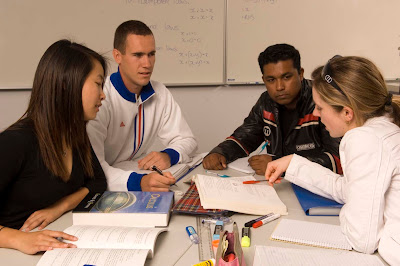


Writing in the Sciences devotees were recently treated to Susanna Carter's popular Mind Mapping workshop where she explored the work of Mind Mapping Guru, Tony Buzan.
Mind Mapping is definitely the buzz in planning work and synthesising knowledge at the moment. Susanna described it as 'enjoyable' and 'highly effective because it uses many parts of the brain'. She also explained how Mind Mapping cuts down on words, paper, superfluous notes and wasted time as concepts are chrystalised and simplified into colourful diagrams.
Here are some links from Susanna's homepage:
Lumosity - games to speed up your brain!
Neuroscience and cognition - an excellent blog
Thanks, Susanna!Andrea








